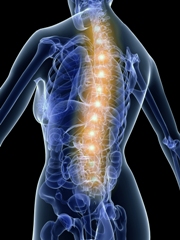 Everyone knows that calcium is an important part of a healthy diet. It is also common knowledge that calcium helps build bones. But what other functions does calcium perform in the body and where do we get calcium from?
Everyone knows that calcium is an important part of a healthy diet. It is also common knowledge that calcium helps build bones. But what other functions does calcium perform in the body and where do we get calcium from?
Calcium is a mineral that is required for living organisms, particularly cellular function. Calcium is an important component that helps to form teeth and bones (99% of our body’s calcium is found in teeth and bones), but is also essential for helping to regulate muscle contraction and transmit impulses along our nerves (including the heart’s electrical conduction system).
Recommended calcium intake is dependent upon a person’s age and whether someone is pregnant or lactating. Health Canada suggests 1000-1300 mg per day which would cover all ages four and above and those pregnant or lactating. This is approximately equivalent to 2-4 servings of calcium-rich foods.
Foods that contain high amounts of calcium are:
- milk
- cheese
- yogurt
- soybeans
- almonds
- tofu
- salmon
- sardines
- shrimp
- crab
- kale
- broccoli
- spinach
Good Bones!
The importance of a diet rich in calcium has been to prevent low bone mass conditions (osteopenia and osteoporosis) as they can lead to elevated fracture risks and have a huge impact on individual morbidity. Peak bone mass is achieved around mid thirties, so we should be educated as adolescents and twenty year olds that our bone health depends on early lifestyle choices such as a healthy diet, weight-bearing exercises and no smoking which all help aid in adding to peak bone mass.
The Research
Of issue recently has been multiple research articles that have shown that elevated calcium levels can elevate one’s risk of heart attacks. Now in some of these recent studies the elevated risk was associated only with calcium supplementation and not with calcium from whole foods.
Even more subtle is that large doses of calcium can cause an imbalance of other important minerals in the body. It is well established that high calcium forces magnesium depletion as one example.
?We will talk about this more on future blogs and how this affects health.?
If supplementation and whole foods calcium intake is above the recommended daily levels the bones may have trouble making use of all the ingested calcium fast enough. Therefore calcium may find storage places in your body you don’t want, such as in the cardiovascular system, which can lead to hardening of the arterial wall, or in the urinary system, which can lead to kidney stones.
The take home message is to obtain adequate nutrition from whole foods when possible. Variety is also important because it gives our body other nutrients that may be required for proper absorption and utilization of these minerals (such as vitamin D in the case of calcium).
